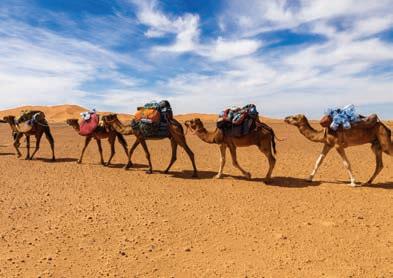
2 minute read
Chapter 3: The Vikings
by Collins
Unit 10: The Mongols Knowledge organiser
1206 Chinggis becomes khagan of all Mongols 1227 Death of Chinggis Khan 1258 Hülegü begins the conquest of the Middle East
1219 Chinggis invades the Khwarazmian Empire
Key vocabulary
Ayn Jalut Meaning Goliath’s Spring, site of the fi rst major defeat suffered by a Mongol army Battle of Xiangyang Six-year siege of Xiangyang and Fancheng that enabled Kublai to go on to conquer the south of China Beijing City founded by Kublai Khan that has been the capital of China in most periods of Chinese history ever since Bukhara Major Silk Road city in central Asia, now in Uzbekistan Caucasus Mountainous land bridge that connects the Middle East with southern Russia Envoy A messenger or representative, especially one on a diplomatic mission Golden Horde Mongol empire that ruled large areas of Russia Jurchen Steppe people with a culture similar to the
Mongols, who conquered northern China about a century before Chinggis Karakorum Mongol capital city on the steppe, founded by Ögedei Khagan Mongol term for a supreme ruler who commands many khans Khan Mongol term for a lord or chieftan Khwarazmian Empire Islamic empire that ruled much of central Asia before Chinggis’s conquests Kyiv The greatest Russian city at the time of the
Mongol conquests, now the capital of Ukraine Nomadic Living a wandering life with no permanent home Red Turbans Chinese rebel movement that overthrew their Mongol rulers, leading to the establishment of the Ming dynasty Sack Plunder and destroy a city Samarkand Major Silk Road city in central Asia, now in Uzbekistan Sedentary Literally ‘sitting’, also used as the opposite of nomadic (to refer to people who live in permanent homes) Shah Persian term for a king or emperor, used by the rulers of the Khwarazmian Empire among others Silk Road An ancient overground trade route that linked East Asia with the West Steppe Flat, vast plains that stretch across central
Eurasia, covering large areas of eastern Europe, central Asia, southern Russia and Mongolia
1260 Mongols are defeated at Ayn Jalut 1368 The Red Turbans expel the Mongols from China Enquiry Question: How successful were the Mongols as conquerors and rulers?
1405 Death of Timur
1272 Kublai Khan founds the Yuan dynasty 1369 Timur becomes ruler of Samarkand 1481 The last great Tatar attack on Moscow is defeated
Key vocabulary
Tatars Name originally given to the fi rst Mongol invaders of Europe, later applied to Mongols in Russia Teutonic Knights German order of medieval knights who were powerful in eastern Europe Trebuchet Very large type of catapult that uses a long arm and a counterweight to throw a projectile Turks Ethnic group originally from central Asia, who inhabited many of the lands along the
Silk Road Yam Mongol system of postal stations that allowed messages to be relayed very quickly Yasa Mongol law code that applied to steppe peoples throughout the Mongol domains Yuan dynasty Mongol dynasty of Chinese emperors founded by Kublai Khan
Key people
Chinggis Khan The fi rst Mongol conqueror, arguably the greatest warlord in the history of the world Ivan the Great Russian emperor who united the country and defeated the Tatars Kublai Khan Mongol khagan and Emperor of China Möngke Khan Mongol khagan who sent a horde to conquer the Arab world Ögedei Khan Chinggis’ successor, who sent hordes to conquer Persia and Russia Marco Polo Italian explorer who wrote a bestselling medieval book about his journey to China Timur Lenk Ruler of Samarkand who built a great empire, remembered as the last of the Mongol conquerors




